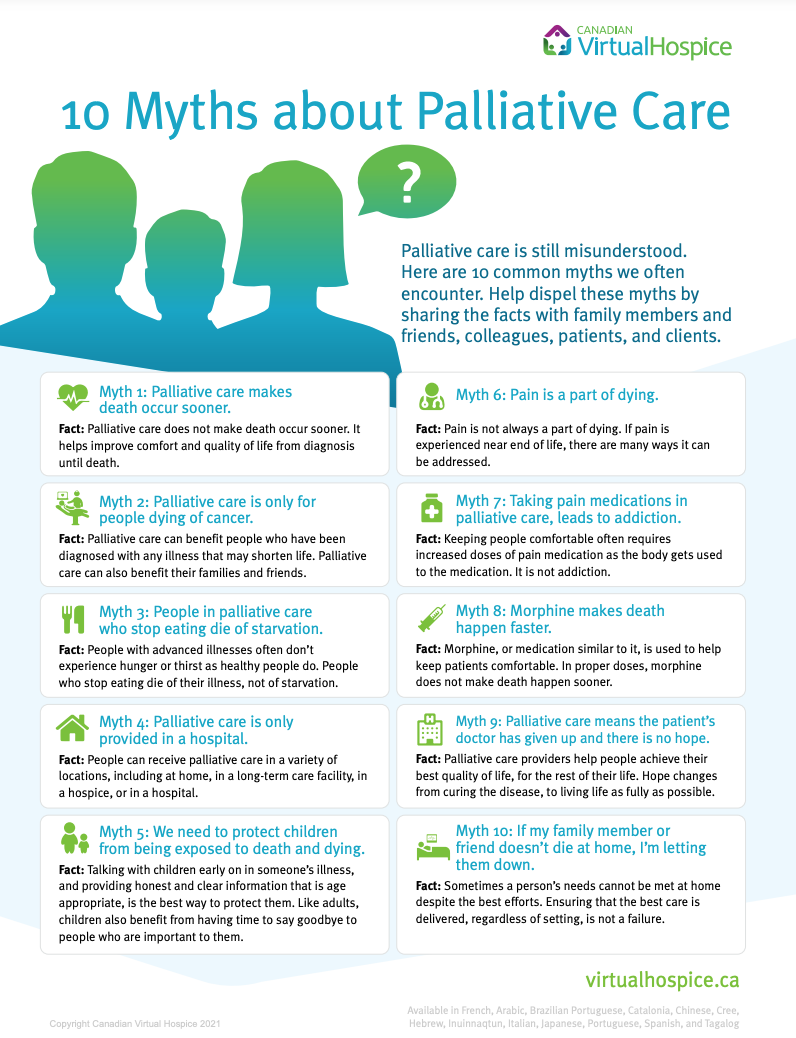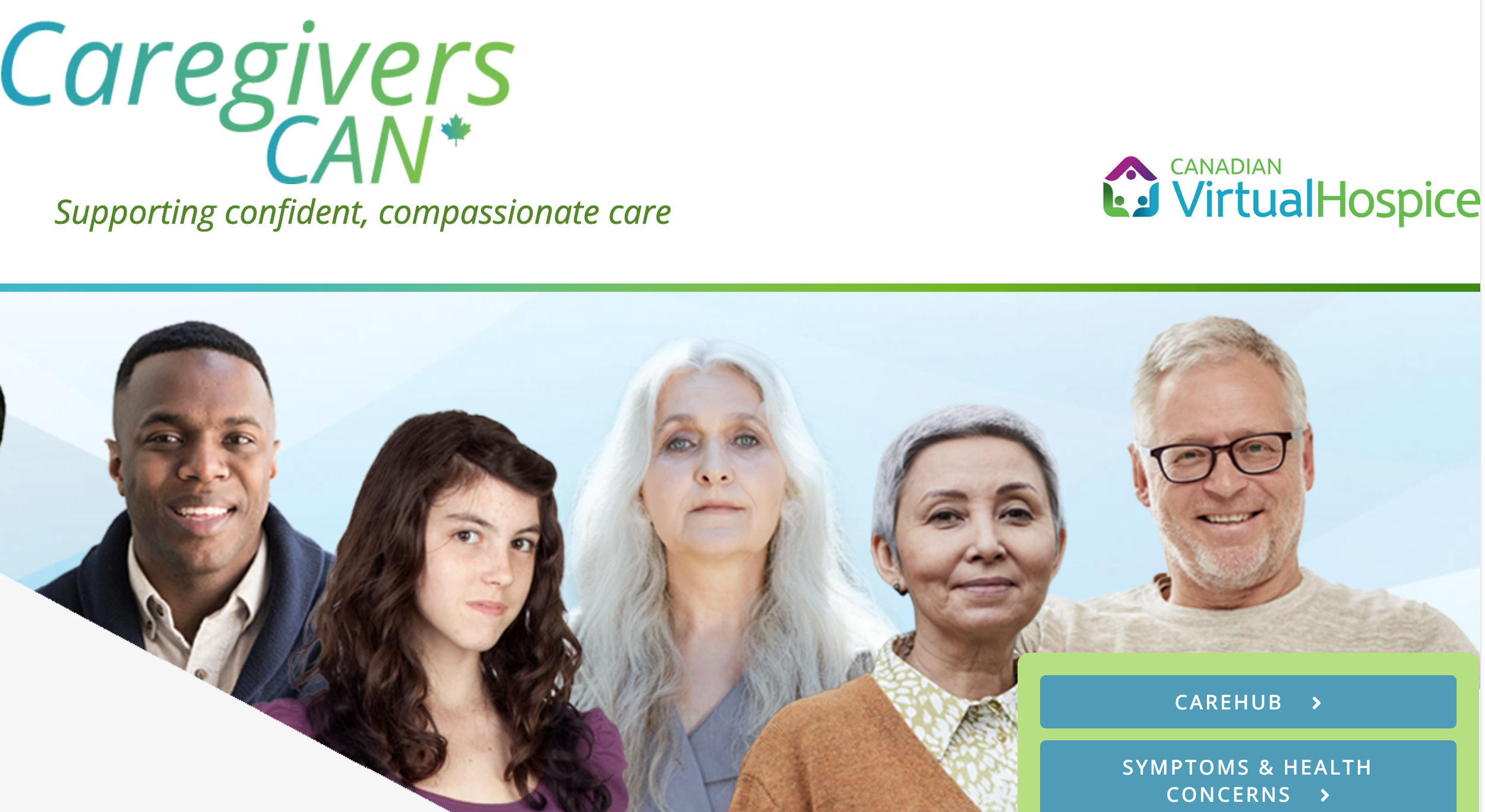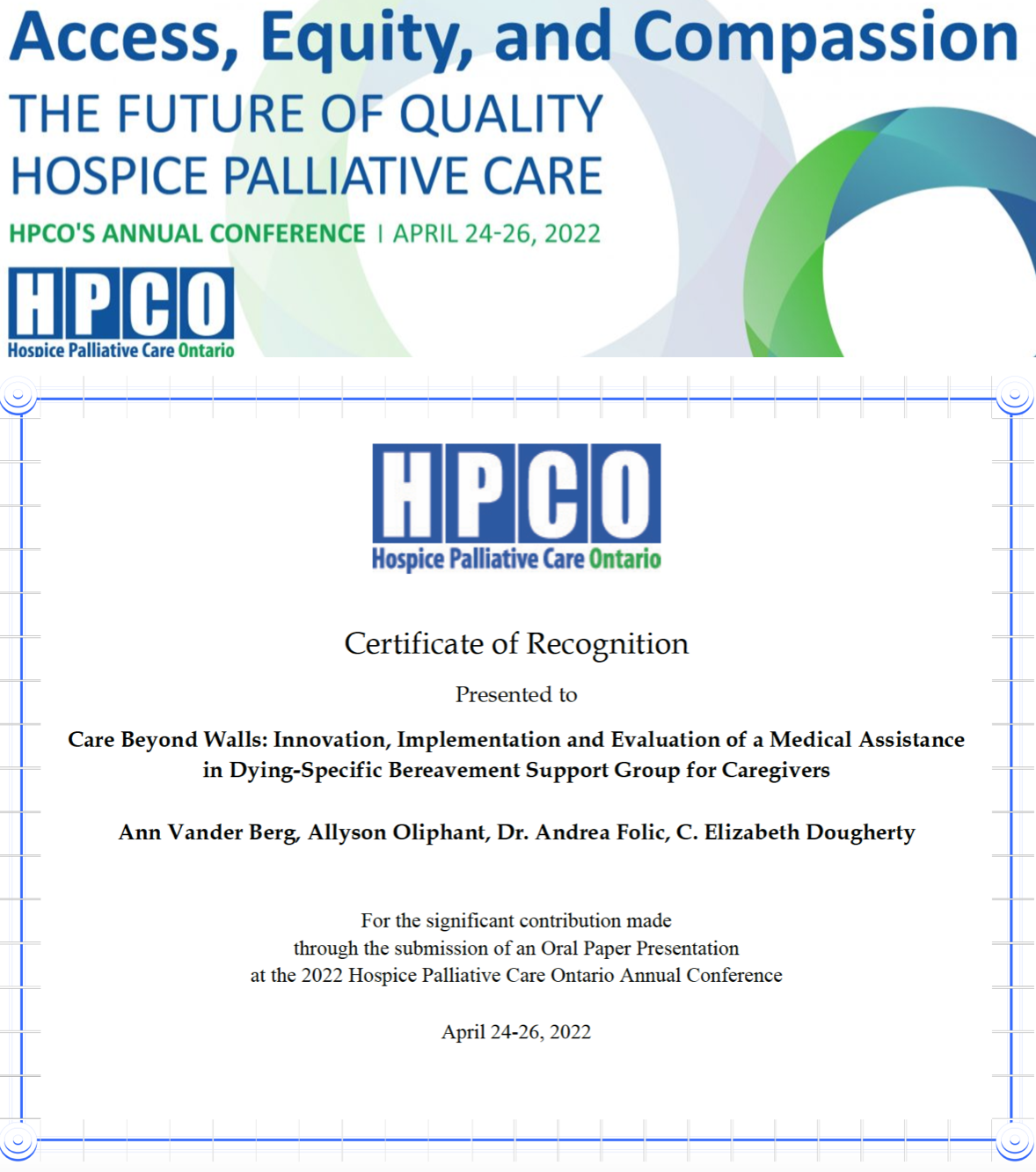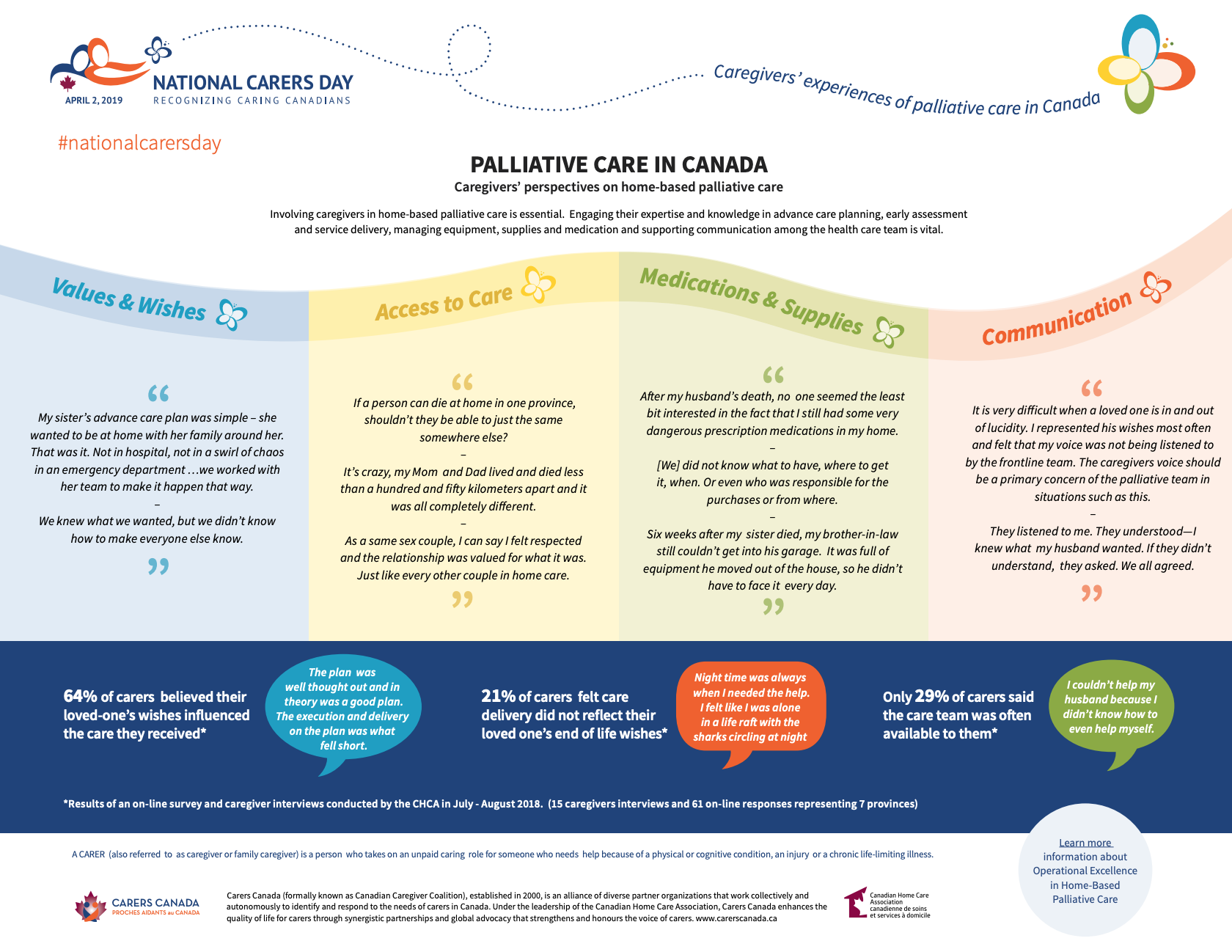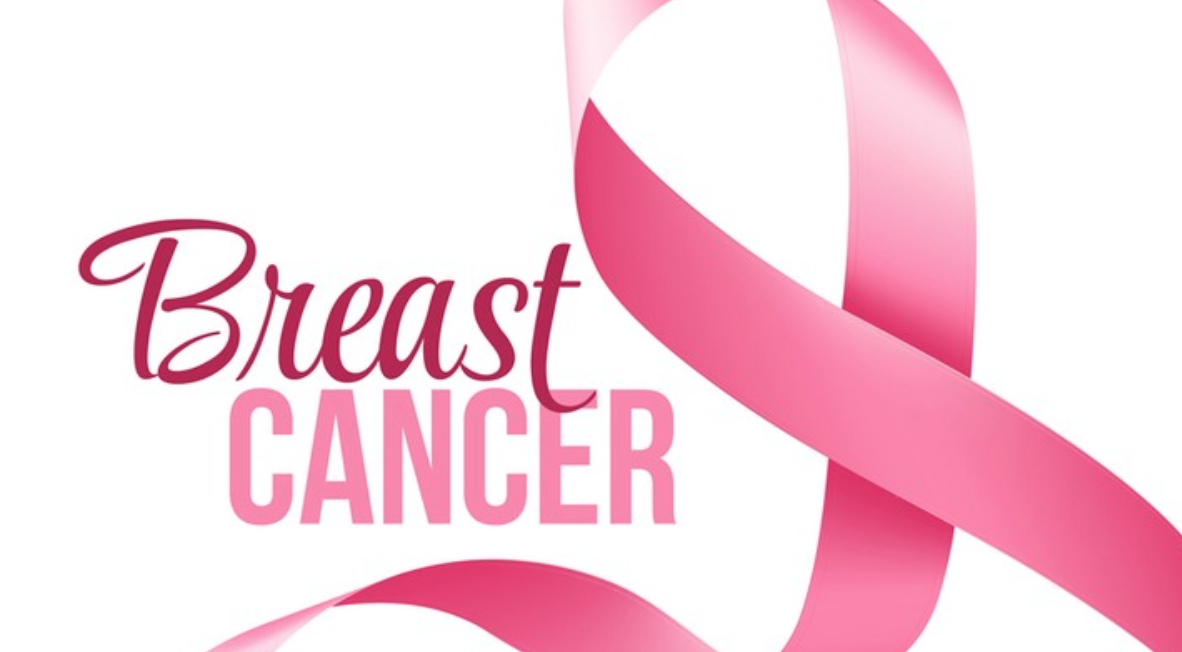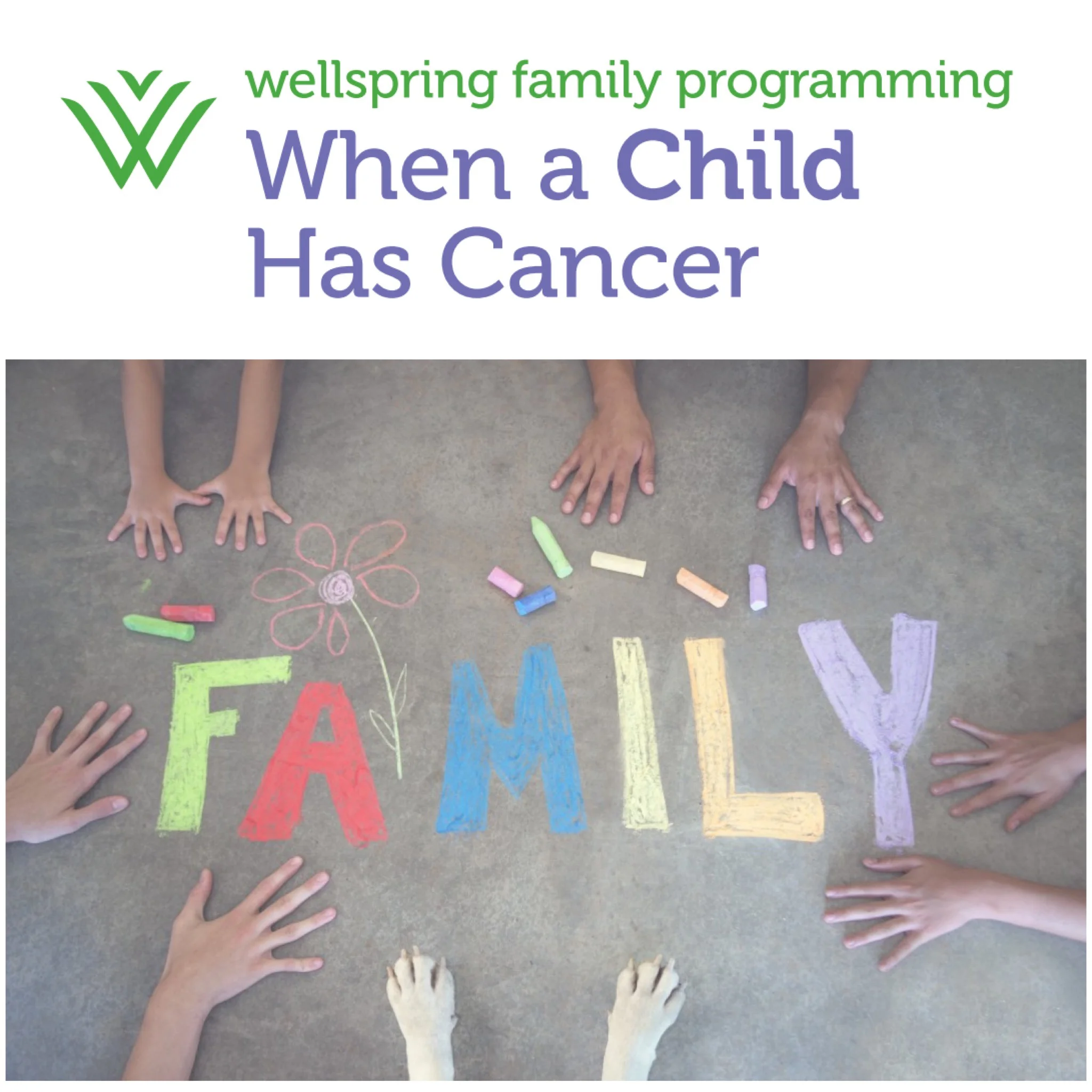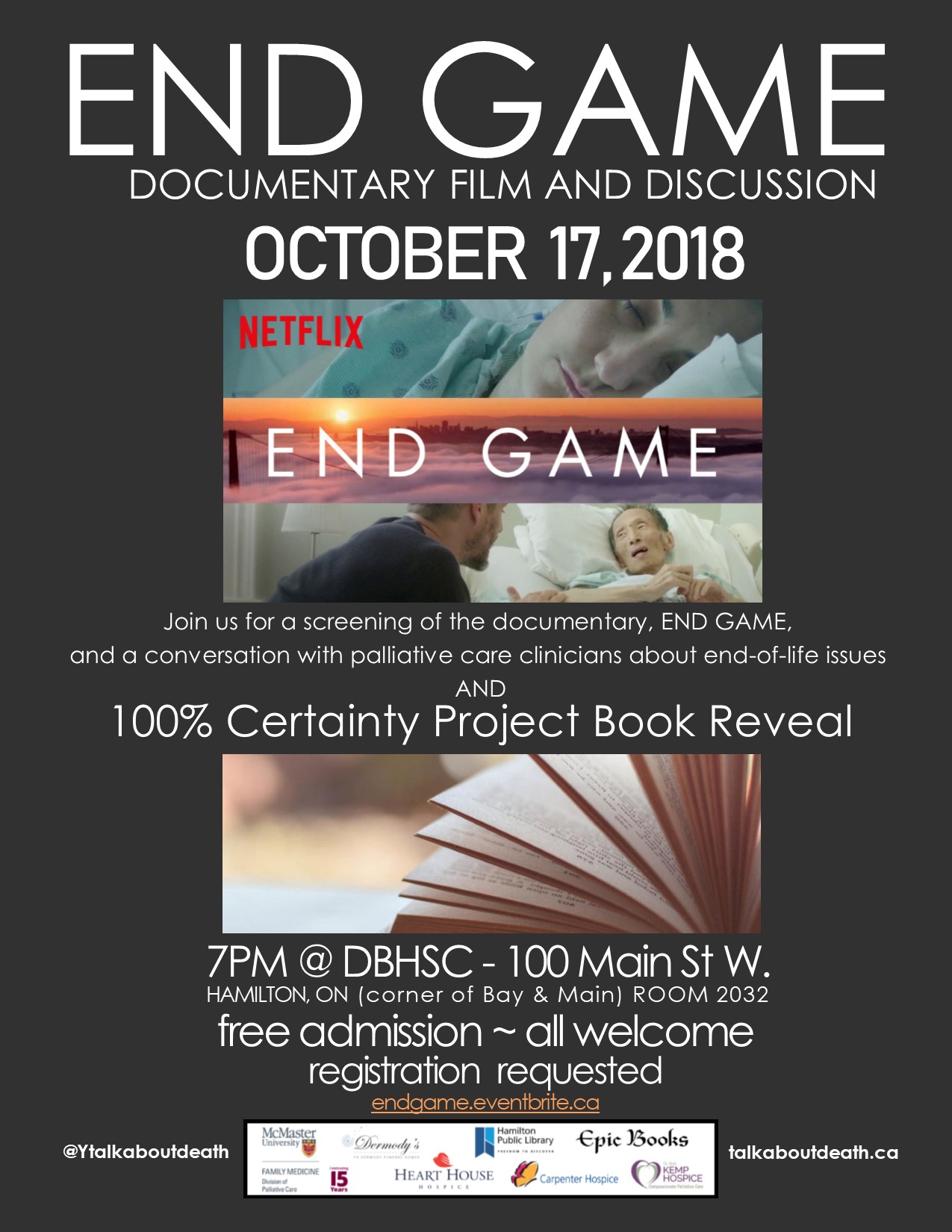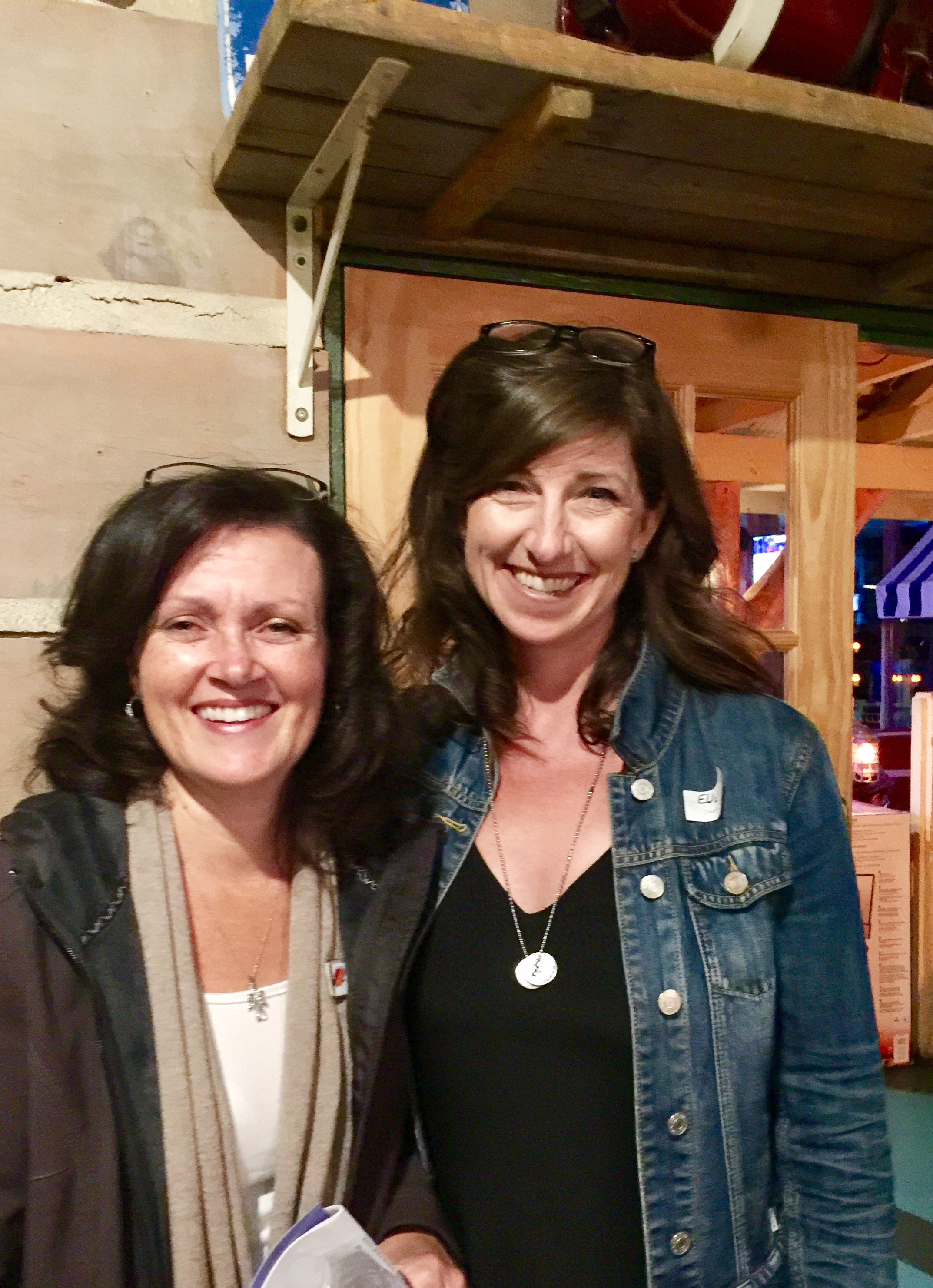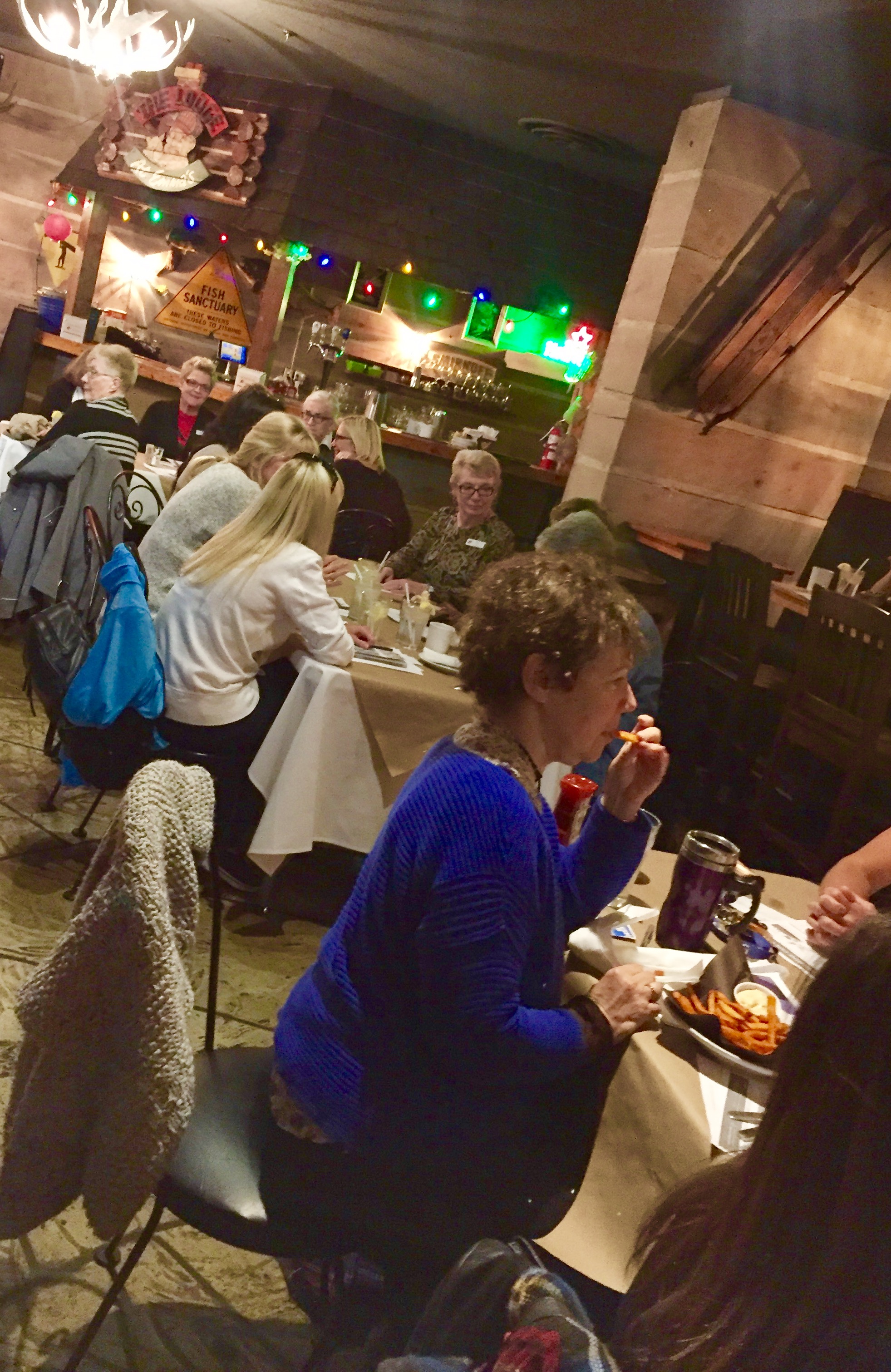National Hospice Palliative Care Week is an opportunity to highlight quality Palliative Care across the country. This week also serves as an opportunity to call for better education and access to Palliative Care for ALL across Canada.
Palliative care is active, collaborative, compassionate and integrated person and family-centred care, for anyone, of any age, facing ANY stage of complex illness.
“Canadians should have access to affordable, culturally safe, high-quality palliative care regardless of where they live and in what setting they choose to receive care. Promoting and supporting the need for improved development and delivery of early, active, competent and compassionate palliative care is essential. This includes expert pain management; skilled psychosocial, emotional and spiritual support; and comfortable living conditions with the appropriate level of care – whether at home, in a hospital, at hospice residences or in any other settings of choice.” Source CCS
To access 10 Myths about Palliative Care, visit Canadian Virtual Hospice
For more information about Palliative Care in Canada, please visit:
The Canadian Hospice Palliative Care Association
Canadian Virtual Hospice
The Canadian Cancer Society
National Caregiver Day is the first Tuesday of April in Canada.
“More than 8 million family and friend caregivers in Canada are providing care in the home. Most caregivers will feel unprepared and overwhelmed at some point. If you are caring for someone who is ill or living with mobility challenges, these modules are for you.
Access them anytime of the day or night, as many times as you need, and at no cost (FREE) via https://www.virtualhospice.ca/caregiving/
These modules include useful information, strategies, and suggestions for preparing for and providing care as illness advances:
-Strategiesfor difficult conversations
-Video demonstrations of caregiving tasks
-Guidance for recognizing and managing symptoms
-Suggestions for accessing programs and services
-Ways to care for yourself
Content is arranged in chapters and pages. Click a Chapter to see the pages and topics covered. You can move through the module pages using the list on the left-hand side or using the arrows at the bottom of the page. To return to the home page click the logo at the top left of the screen. Some modules include video clips showing how to do caregiving tasks or people sharing their experiences.”
Source: Canadian Virtual Hospice
If you have questions, email info@virtualhospice.ca
Best Oral Paper Award at #HPCO2022!
Incredibly honoured as the Clinical Lead to receive the Best Oral Paper Award at #HPCO2022 Hospice Palliative Care Ontario Annual Provincial Conference with our incredible interprofessional team: Ann Vander Berg, Allyson Oliphant, and champion for our project - Dr. Andrea Folic for "Care Beyond Walls: Innovation, Implementation and Evaluation of a Medical Assistance in Dying-Specific Bereavement Support Group for Caregivers"
Myths about Palliative Care
It is so important to demystify the incredible scope and breadth of Palliative and end of life Care. For National Hospice Palliative Care Week in Canada (May 2nd- 8th), I am re-posting a great resource from CVH - an incredible source of evidence-informed Hospice Palliative Care resources for individuals, families, healthcare providers or volunteers serving anyone facing life-limiting illness, grief and bereavement.
An infographic about 10 myths that are often encountered in Palliative Care (also available in French, Arabic, Brazilian Portuguese, Catalan, Chinese, Cree, Hebrew, Inuinnaqtun, Japanese, Portuguese, Spanish and Tagalog).
Source: Canadian Virtual Hospice
C. Elizabeth Dougherty Consulting Newsletter Winter 2021
Honoured to share my Winter 2021 newsletter including resources for individuals and families of all ages facing a complex illness, from diagnosis through to bereavement. Grateful to also share undergraduate and graduate Social Work education, along with medical education and interprofessional education for healthcare providers demystifying palliative care.
Support for Grieving Young Adults (ages 18-30)
Actively Moving Forward® (AMF) is a network created in response to the needs of grieving young adults (ages 18-30) and is connecting, supporting, empowering grieving young adults to “actively move forward” in memory of their person.
Now, a FREE AMF app offers new ways to connect!
“You’ll have full access to facilitated virtual support groups, tools, resources, reading, videos, supportive quotes, community engagement via direct messaging, group chats, posts and interactive comment boards. Group members may be tagged by person in their life that died so that members grieving a similar death loss can easily find each other.”
Time to connect on a whole new level. Deepen friendships, engage with groups, simplified chats, find events, webinars and a host of other valuable and helpful resources.
To register for this app and access FREE bereavement support, visit Actively Moving Forward®
#BustingTheMyths about Hospice Palliative Care
It’s Hospice Palliative Care Week in Canada.
The campaign (May 5th – 11th) this year focuses on #BustingTheMyths about Hospice Palliative Care
This year, the Canadian Hospice Palliative Care Association (CHPCA) designed a “Busting the Myths” campaign as a response to the need to educate Canadians including caregivers, physicians and all healthcare providers, citizens and political leaders around common myths about hospice palliative care.
The #BustingTheMyths campaign aims to empower Canadians through education by identifying and clarifying misperceptions about Hospice Palliative Care in Canada.
Working together to educate one another is a vital step in the pursuit of excellent Hospice PalliativeCare.
Source: CHPCA Canadian Hospice Palliative Care Association
April 2nd is National Carers Day
About National Carers Day
In April 2010, the Parliament of Canada unanimously adopted a motion declaring the first Tuesday in April “The Invisible Work Day.” This day was designated to recognize the importance of the “invisible” unpaid work carried out by parents and caregivers on behalf of their children and aging family members, as well as the volunteer work done in the community. Recognizing that caregivers come from all walks of life and take on many roles, the first Tuesday in April is a special day where we can recognize all caring Canadians.
#NationalCarersDay
Free Breast Cancer Support Group
Am pleased to be facilitating this FREE support group at Wellspring Chinguacousy for women following a diagnosis of breast cancer.
The Breast Cancer Support Group provides a community for women who have been newly diagnosed with breast cancer, or are currently in treatment. This group can reduce isolation and provide an opportunity for peer support, to meet with others to explore the many emotional, social and practical challenges of coping with breast cancer
While this is a FREE group, registration is required, with a commitment to attend each week, for a period of six weeks. The next group is offered on the following dates:
Mon Mar 11, 2019: 12:00pm - 1:30pm
Mon Mar 18, 2019: 12:00pm - 1:30pm
Mon Mar 25, 2019: 12:00pm - 1:30pm
Mon Apr 1, 2019: 12:00pm - 1:30pm
Mon Apr 8, 2019: 12:00pm - 1:30pm
Mon Apr 15, 2019: 12:00pm - 1:30pm
For information, or to register, please visit Wellspring Chinguacousy
FREE family support group when a child has been diagnosed with cancer
Am honoured to be co-facilitating this FREE support group for families when a child has been diagnosed with cancer.
Each evening session begins with community-building and a light dinner is provided for all in attendance. This family support group at Wellspring is professionally facilitated and provides an opportunity for parents of children with cancer to connect for mutual support, for the sharing of ideas, for discussion and for networking. While the parents meet, the children (ages 5-13) will meet simultaneously in a separate group and focus on themed therapeutic activities designed to assist with their psychosocial needs.
Upcoming Dates:
Mon Mar 18, 2019: 6:00pm - 8:00pm
Mon Mar 25, 2019: 6:00pm - 8:00pm
Mon Apr 1, 2019: 6:00pm - 8:00pm
Mon Apr 8, 2019: 6:00pm - 8:00pm
Registration is Required. Please note: This program requires a commitment for families to attend all sessions. For information, or to register, please contact 905-257-1988 or 1-877-499-9904.
End Game Documentary and Discussion
Excited to co-host and participate on the panel for the launch of the 2018-9 season of "The 100% Certainty Project. Death: Something to Talk About". Join us for a screening of the Netflix documentary, "END GAME" followed by a conversation with Palliative Care clinicians.
Our free public event at McMaster University features the brilliant documentary "End Game" from Shoshana Ungerleider, MD highlighting the essential tenets of Hospice Palliative Care. The film showcases the collaboration, compassion and communication as the heart of person and family-centred care at UCSF Medical Center with Steven Pantilat and the extraordinary interprofessional team. The film also highlights the brilliant work of Zen Hospice Project, showcasing Dr. BJ Miller and the extraordinary interprofessional team in Hospice.
Please join us for this engaging event! While the event is free, registration is required via Eventbrite via https://www.eventbrite.ca/e/end-game-documentary-and-discussion-tickets-50535681584
Almost all Canadians would benefit from palliative care. Only one in seven can actually access it at end-of-life
“The key to providing decent palliative care is a little bit of basic planning. Four conditions – cancer, cardiovascular disease, COPD (lung disease) and diabetes – account for 70 per cent of deaths.
Those chronic conditions all have fairly predictable courses of illness in the terminal phase. You don’t get diagnosed with lung cancer or heart failure one day and die the next. It’s a months-long process and providing pain relief (palliation) should be standard, and a priority.
Two in three people receive home care in their last year of life. But only one in seven receive palliative care in the home.
That’s the failure point – and that’s what we need to fix.
There needs to be a commitment – philosophical and financial – to bringing palliative care to patients when they need it and where they want it.
Not everyone can (or should) be cared for at home in their final days. It’s back-breaking, emotionally-draining work for loved ones. Yet many would do so willingly and lovingly.
But they run up against a gross number of barriers, ranging from difficultly getting home visits from physicians (who are poorly remunerated for that work in many provinces), lack of nursing support (because of caps on home care hours), and absurd rules that mean drugs taken at home are not covered by medicare.
All the problems raised by the CIHI report are easily resolved. For example, having paramedics provide palliative care can eliminate transfers to hospitals. Sending doctors and nurses to homes or nursing homes can free up hospital beds – and save money in the process. Not to mention that, at the very least, people deserve a modicum of dignity in their dying days.
The whole point of palliative care is to improve quality of life. We shouldn’t let bureaucratic and structural inadequacies undermine that necessary and noble work.“ by the brilliant André Picard via The Globe and Mail
Professional Competencies with the Michael G. DeGroote School of Medicine at McMaster University
Thrilled to be teaching Professional Competencies with the Michael G. DeGroote School of Medicine at McMaster University.
"In Pre-Clinical studies, Professional Competencies (Pro Comp) runs in parallel to the Medical Foundations. Groups of 8-10 students work with a pair of facilitators, one MD and one a clinician from a different discipline. The groups stay together for the entirety of Pre-Clinical, meeting every Tuesday morning for 3 hours. They explore material covering seven domains: effective communication, medical decision-making, moral reasoning and ethical judgement, population health, professionalism and self-awareness and self-care, interprofessional practice and social, cultural and humanistic dimensions of health." via https://mdprogram.mcmaster.ca/mcmaster-md-program/what-is-compass2/pre-clinical/pro-comp
Support for individuals and families across Canada facing Pancreatic Cancer
Am honoured to be part of this brilliant new initiative offering free support to anyone facing Pancreatic Cancer across Canada. This initiative is a collaboration between Pancreatic Cancer Canada Foundation and Wellspring Cancer Support Network
For more information, or to access support, please visit: https://wellspring.ca/online-resources/pancreatic-cancer-peer-support/
Do you know a grieving child or youth (aged 6-17) who could benefit from support?
Do you know a grieving child or youth (aged 6-17) who could benefit from support?
Am proud to be the new Clinical Director for Camp Erin Hamilton and want to share information regarding this extraordinary free camp.
Camp Erin is a FREE weekend bereavement camp (held annually in June) for children and teens ages 6-17 who are grieving the death of someone close to them (parent, caregiver, sibling). Campers participate in fun, traditional camp activities combined with grief education and emotional support, led by expert bereavement professionals and trained volunteers.
The following short videos capture Camp Erin Hamilton and highlights some of the kids and teens sharing the brilliant range of experiences that both normalize their thoughts and feelings and further empower them to cope with grief and loss.
If you know a grieving child or teen (6-17 yo) who would benefit from this experience, camper applications are now being accepted. Camper applications are due March 26th.
For more information, please watch the following video, or visit Dr. Bob Kemp Hospice or https://kemphospice.org/camp-erinfor details and application forms.
A Wonderful evening at the Burlington Death Cafe!
Thank you to all in attendance this evening at the City of Burlington, Ontario Death Cafe in support of World Hospice Palliative Care Day, The Carpenter Hospice and the Compassionate City Charter. It was indeed an uplifting evening of inspiring conversations (& lots of laughter!). Great opportunity to demystify the incredible breadth and scope of Hospice Palliative Care!
Special thanks to the staff and volunteers of Carpenter Hospice who gave of their time this evening, and to our wonderful hosts at Emma's Back Porch & Water Street Cooker!
Next Burlington Death Cafe is in April in support of Advance Care Planning Day! #talkaboutdeath
Palliative Care: the Pearl of Great Price
"Palliative care is the stance of being comfortable with the unknown, a stance that leads to the development of confidence, resilience, and empowerment in patients and families receiving the best care... we are all vulnerable, all subject to suffering, old age, and death..."
Death: A Part of Life. A 5-Part Mini Series (podcast)
Am honoured to have been a guest panelist on the final instalment of Death: A Part of Life - Part 5: The Grieving Process.
This informative 5-Part radio series with the Dr. Bob Kemp Hospice aired on CHML 900. Each week panelists including caregivers and healthcare professionals convened to open up a conversation about dying, death, grief and loss. The series explores issues such as: coping with the diagnosis of a serious illness; demystifying hospice palliative care; exploring available supports and services; advance care planning; the dying process and grieving which ultimately impacts us all.
The links to the podcasts of Death: A Part of Life are listed below:
Death, A Part Of Life - Part 1: Palliative Care.
It’s a fact of life that at one point we all will die. But is it all as simple as that? Bill Kelly and the Bob Kemp hospice will be discussing grief, relief and the acceptance of passing away. On today’s show we discuss what happens when you’re told you don’t have much time left, and whether healthcare is asking too much of caregivers, and whether people are prepared for palliative care.
Death, A Part Of Life - Part 2: Changes To Palliative Care.
For our second show, we will discuss what the palliative care system is now, how it works and what changes need to be made. What does one of our local MPPs hear from his constituents about healthcare and in particular, palliative care? How would changes affect patients? Does fear have a hold on how we make our decisions once we’re diagnosed as palliative? An example of this is whether to choose palliative care or medically assisted death.
Death, A Part Of Life - Part 3: Religion and Palliative Care.
We continue our series this week with two topics. The first one will be discussing the experience of death. Everyone treats death in our world differently. But is it strictly a medical experience or is it a spiritual one? In our second half, we will talk about access to palliative care services in various sectors of our society. How do we help the vulnerable and the community obtain access to proper palliative care?
Death: A Part of Life - Part 4: Bucket lists and preparation.
Life should be celebrated at all stages, whether it be infancy, adulthood and as life comes to a close. So how can we make the most out of life? How can those who are in palliative care achieve their “bucket list” dreams before they pass, and how does it apply when it comes to their own personal circumstances? How do we define a “bucket list”? How wise is it to be prepared for eventual health issues? How should we plan for advanced care and how does it affect the family? How do we navigate through the difficult decisions and pain to provide care for loved ones who are palliative?
Death: A Part of Life - Part 5: The grieving process.
The final instalment in our series sees us discussing grief and how this isn’t just an event that happens in life but a process that families have to go through. How do families grieve the loss of a loved one? How can we support one another and how does grief affect children?
Source: Global News. AM 900 CHML
Camp Erin: Where Children and Teens Learn to Grieve and Heal
Am honoured to volunteer with Camp Erin. It is indeed a remarkable community and one that nurtures capacity in children and youth to grieve the death of a loved one.
"Children and teens ages 6-17 attend a transformational weekend camp that combines traditional, fun camp activities with grief education and emotional support, free of charge for all families. Led by grief professionals and trained volunteers, Camp Erin provides a unique opportunity for youth to increase levels of hope, enhance self-esteem, and especially to learn that they are not alone.
Camp Erin is offered in every Major League Baseball city as well as additional locations across the U.S. and Canada. The Moyer Foundation partners with hospices and bereavement organizations to bring hope and healing to thousands of grieving children and teens each year.
Camp Erin allows youth to:
- Tell their story in a safe environment
- Process grief in healthy ways
- Meet friends facing similar circumstances
- Learn they are not alone
- Build a tool-box of coping skills
- Honor and memorialize loved ones
- Have fun!"
Source: Camp Erin. The Moyer Foundation
For information on Camp Erin locations in Ontario, please visit: Camp Erin Hamilton; Camp Erin Toronto; Camp Erin Eastern Ontario; Camp Erin Montreal
Hospice Palliative Care is about Living Well. Right to the End.
It's National Hospice Palliative Care Week and it is so important to demystify and destigmatize the incredible breadth and scope of Hospice Palliative Care.
Hospice Palliative Care is about Living Well. Right to the End.
Hospice Palliative Care is aimed at relieving suffering and improving the quality of life for persons who are living with, or dying from, advanced illness or are bereaved.
The goal of Palliative Care is to provide comfort and dignity for the person living with the illness, as well as the best quality of life for both this person and his or her family*.
Palliative Care services are helpful not only when a person is approaching death but also during the earlier stages of an illness. Palliative care may be combined with other treatments aimed at reducing or curing the illness.
*”family" is whoever the person says his or her family is.
For more information and resources regarding Hospice Palliative Care, please visit the Canadian Hospice Palliative Care Association.

